———
Did Ralph Torres and members of his administration commit crimes?
“Yes.”
With everything you’ve experienced, everything you’ve seen, do you think they will ever face criminal justice?
“No comment.”
Is there any hope for criminal justice?
“I can’t make promises. There is a fundamental change that needs to happen to set up a more sustainable government and that will have to come from the people here. The forces that I have been facing have made it clear that these changes will not be received from an outsider. That is understandable and common anywhere, of course, but I still hope I can advise and encourage some positive change.”
“When people, especially the manamko, express their support for me, it helps ease the frustration and sense of unfairness I’ve experienced. I am not seeking personal victories here, but rather working toward building a government that serves all of its constituents, not just a select few.”
Is this the most corrupt place you’ve ever seen?
“Certainly in America, yes.”
—–
If you’re wondering why the CNMI government has not yet succeeded in holding Ralph Torres and actors within his administration accountable for allegations of scores – if not hundreds – of crimes, you might be able to find your answers here.
———
Kandit on January 12 interviewed James “Jim Bob” Kingman – the lawyer with a reputation for going after the corrupt – in Saipan. The former journalist and Harvard Law-educated attorney – two weeks away from a scathing in-court lecture by Judge Kenneth Govendo – seemed to fight against exasperation, incredulity, and the temptation to pick up the pieces and to call it quits.
There’s that recent joke of a euphemism for the unwise: ‘Wisdom has been chasing you, but you always seem to outrun her.’ Then there’s the old adage, ‘Snatching defeat from the jaws of victory.’ Systemic corruption in the Commonwealth places its voters – most of whom appear to be [at least in the results of recent elections] anti-corruption – on a loop chasing the oligarchy: the few people who wield such tremendous influence, a former governor can allegedly break the law and steal from citizens and even from the federal government without worry of consequence to them.
Jim Bob Kingman wants to break that loop and turn it into a linear chase that has a legal end, rooted in criminal and social justice. And so, naturally, those men and women who lurk in their powerhouses want to break him.
He won’t be broken.
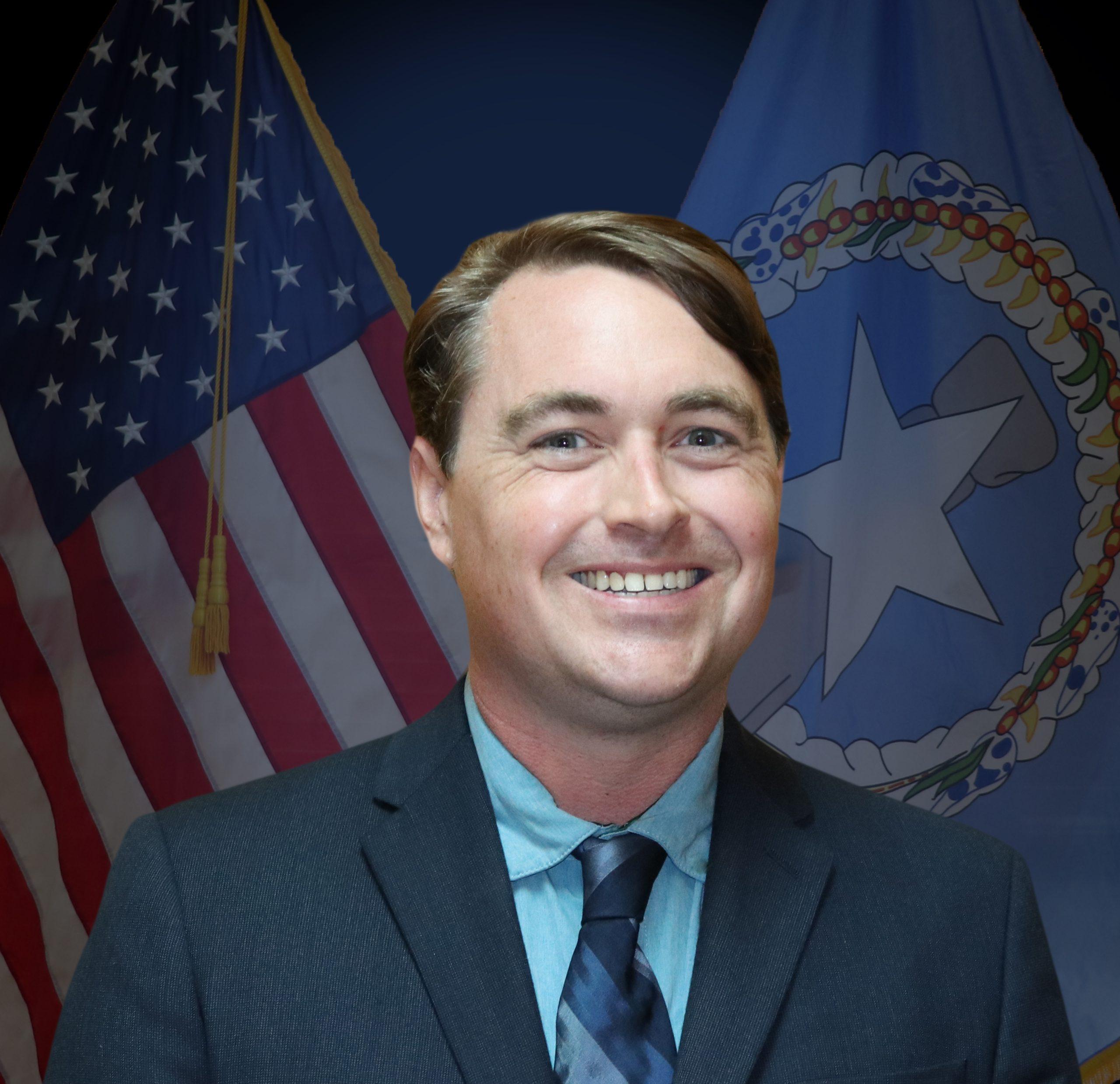
The Job No One Else Would Do
Mabel Doge Luhan famously quipped that in the Marianas, “We never miss an opportunity to miss an opportunity.” Ms. Luhan, like many more who have been waiting for criminal justice, has become impatient with the U.S. Attorney’s Office for Guam and the NMI. She, like many others, had no hope in the local system of justice, until Jim Bob Kingman came onto the scene.
The Commonwealth government brought Mr. Kingman to the CNMI to prosecute Mr. Torres. He began his work in March of 2023 in the wake of a government that had not (even to this day) fully grasped the complexity and the enormity of the corruption and crimes committed during Ralph Torres’ seven-year reign of impunity.
Mr. Torres suspended the annual financial audits of the government halfway through his regime. The financial management system he turned over to his successor, Arnold Palacios, was unnavigable. From what the Palacios government could ascertain at the time, out of more than half a billion dollars in federal discretionary pandemic funds, Mr. Torres left less than nothing in the bank; he left the CNMI government with an $80 million deficit in obligations to the federal accounts.
The sliver of records that made it past the opacity of the Torres regime showed entry after entry of family members, CNMI Republican Party officials, Torres goons in the legislature, corporate and political cronies all making out with sole source contracts in the millions.
In late 2019, the FBI, armed with warrants signed by the federal judge in Gualo Rai, raided Mr. Torres’ gubernatorial office, his home, the office of his brothers’ law firm, and several offices of the now-defunct casino operator in Saipan. Among the crimes alleged in one of the warrants were money laundering, wire fraud, and foreign interference in a United States election.
Prior to the raids, major national newspapers published investigative reports linking Mr. Torres to corruption involving members of the Chinese Communist Party. Journalists connected the dots between his infamous trip to Macau that immediately predated the sudden passage of pro-casino legislation in the Commonwealth through to the labor, financial, and other legal abuses alleged once that casino began to operate. Relevant to this conversation is the fact that it was not local journalists who pursued these reports, but journalists tens of thousands of miles away who did the work. Also relevant is a trail connecting the casino and the Torres administration to financials that benefitted local journalists.
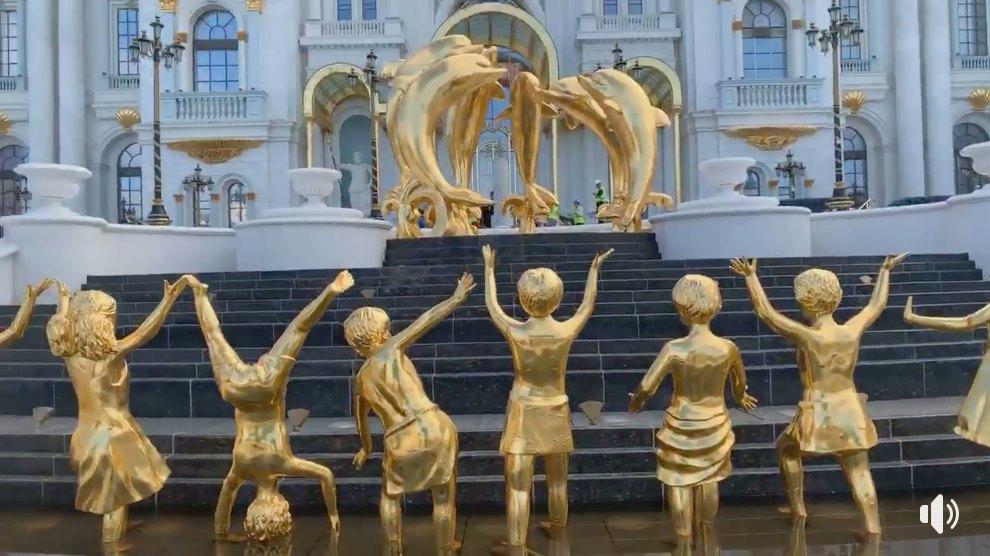
In the days following the raids, private citizen Celina Roberto Babauta began to provide Kandit with what became thousands of pages of documents she had secured through Open Government Act demands for records. Those records showed clear and convincing evidence that on top of everything else that happened (and which no official body has figured out completely), Mr. Torres had used his position to fund personal shopping sprees, travel illegally, have the people of the CNMI pay for his use of hundreds of thousands of dollars worth of power and water, stick the bill for the operation of a private piggery at his home on the backs of the people, and use 26 separate credit cards to make unauthorized purchases without any public purpose.
That, despite initial pushback by Republicans, eventually led to his impeachment in the House. His cronies in the Senate, however, managed to stave off his removal from office by stacking the deck against the House’s prosecutorial duties.
Mr. Torres’ impeachment victory in early 2022 would pave the way for two major events dealing with federal pandemic funds. The Republicans would go on to prevent the legislature from prohibiting Mr. Torres to spend the half-a-billion in discretionary pandemic funds without legislative approval. And then in the months leading into and through the 2022 general and runoff elections, Mr. Torres would use $17 million of those federal funds in what has been described as a vote-buying campaign disguised as the Building Optimism and Opportunity for Stability Together (BOOST) program.
By that time the voters had had enough. They sent the governor packing, electing in the 2022 runoff election Mr. Palacios to be the governor. He took office in January 2023 along with a new independent-Democrat coalition majority in both houses of the legislature on a clear mandate of fiscal reform and tackling corruption.
But the damage had been done. Mr. Palacios has managed to keep the ship of state from capsizing, but the economy has never recovered from Mr. Torres’ bash fest.
In April of 2022, the Office of the Attorney General filed the first local criminal case against Mr. Torres following certification from the CNMI House of Representatives that the then-governor had committed contempt of the legislature, a crime.
Enter Kingman
The Texas attorney, new to the CNMI in March 2023, began his work as a contracted special prosecutor, and immediately felt the backlash. To make a long story short, Mr. Torres’ legal team successfully prolonged criminal justice against the former governor, first by dragging out questions as to Mr. Kingman’s legal ability to practice law in the Commonwealth. The several judges assigned to the case allowed continuance after continuance, peppered by their allowance of questionable tactics by the defense, delays throughout the pre-trial period, and near endless discussion in and out of the courtroom about Mr. Kingman’s role in the prosecution.
By May of 2023, a new Judge had been appointed since Mr. Kingman’s arrival, and Kingman did what many had been waiting for: He added to the original charge(s) against the former governor. The additional charges included the prosecution of his alleged theft, illegal travel, utilities payments, and other crimes in 38 additional charges totaling hundreds of thousands of dollars in illegally derived wealth that were the subject of the AG’s investigation.
On May 17, 2023, Attorney General Edward Manibusan created the Public Integrity Task Force along with the commissioner of the Department of Public Safety and the Office of the Public Auditor. On June 29 that year, after the new judge had set off the trial indefinitely, Mr. Manibusan hired Mr. Kingman to lead this task force.
The Public Integrity Task Force was supposed to bring the resources and collective weight of the OAG, the Office of the Public Auditor, and the Department of Public Safety to descend upon the corrupt.
So far, it has resulted in the languishing prosecution of arguably the Commonwealth’s most slippery criminal defendant: Ralph Torres.
Between the creation of the task force and today has been a flurry of legal maneuvers, lopsided and questionable court rulings, blockades in the legislature against support for Mr. Kingman’s efforts, silence from the very people who brought Mr. Kingman to Saipan, a coordinated attack on the prosecutor’s integrity and profession, and what appears to be a purposeful drive to get Mr. Kingman to quit and to leave the CNMI.
The Oligarchs Will Have to Force Him Out and Explain Themselves to the Public
During the 30-minute interview, Mr. Kingman expressed frustration over the ingrained and endemic hold of the political establishment, which has obstructed efforts to pursue criminal justice against corruption. Reflecting on his experiences since March 2023, he shared how the CNMI’s clearly flawed criminal justice system has undermined his belief that the rule of law can prevail. He emphasized that meaningful change is only possible with a paradigm shift among the people to reclaim their government.
“It certainly seems like there is a concerted effort to make sure these cases do not proceed,” Mr. Kingman said. “It was clear there wasn’t going to be any progress in developing that case.”
Aside from the unscrupulous barrage of motions and attacks on Mr. Kingman, his first major hurdle involved the removal of a critical tool for his investigation and prosecution of Mr. Torres’ crimes. The problem arose when Mr. Kingman issued a subpoena to Mr. Torres’ campaign treasurer for records the Torres campaign had failed to disclose to the Commonwealth Election Commission. Shortly after, the trial court ruled that the OAG did not have the authority to issue investigative subpoenas, a tool used by every other jurisdiction in the United States and its territories.
“They took away the power for investigative subpoenas that I have been told has existed for decades,” he said, adding that it was done at the prompting of the clerk of the court. It should be noted that the former governor’s sister is the clerk of the NMI Supreme Court.
The (judge pro tem) superior court’s action against the prosecutor left observers stunned, including Marissa Flores, a member of the House from Precinct 3. She had filed a bill to clarify that the OAG has the power to issue investigative subpoenas. The bill drew opposition from the small legal community, many of whom are or at one point were attorneys for the Torreses or for sectors of the government during Republican rule.
Despite opposition, the bill passed the independent-Democrat (colloquially, INDEMs) controlled House, but then languished in the Senate due to then-Senate President Edith Deleon Guerrero’s shift in loyalty from the anti-corruption INDEMs back to her Republican roots. It should be noted that Ms. Deleon Guerrero claimed she could investigate ARPA funding herself, but was then unable to get the information.
Ms. Flores and her Senate colleague, Celina Roberto Babauta, have been the most vocal critics of the legislature’s failure to pass the AG subpoena legislation. If the opponents of Ms. Flores’ legislation prevail, then investigations into a governor’s alleged criminal activity could only be conducted by the very agencies directly appointed by the governor and subject to his removal power.
In an interview, Ms. Babauta said she would support such legislation in the new legislature, and that she would continue to support Mr. Kingman in his pursuit of criminal justice.
Governor Arnold Palacios, in a separate interview with Kandit also said he would support the granting of this tool to the OAG so that Mr. Kingman can do his job.
In the absence of the OAG’s ability to issue investigative subpoenas, it has been within the power of the Office of the Public Auditor to issue them. But the OPA never did.
“We never really had full throated interactive support from OPA, or DPS,” Mr. Kingman said. “We were not able to use their subpoena power despite what their agreement and announcement was. The rationale was never clearly explained.”
Kandit reached out to acting Public Auditor Dora Deleon Guerrero, who declined to answer why her office had failed to cooperate with the task force in assisting Mr. Kingman with investigative subpoenas.
“OPA cannot comment on the existence or status of on-going investigations, as all investigations are statutorily confidential per 1 CMC §§ 7849 and 8563,” she wrote to Kandit in early March.
In fact, OPA and DPS officials on the task force both stopped attending the meetings in late 2024, with OPA having pulled out of the task force early this year while Mr. Kingman was on vacation.
“The Office of the Public Auditor (“OPA”) exited the task force because the task force prosecutor suspended all weekly meetings of the taskforce indefinitely,” Ms. Deleon Guerrero said. “However, OPA continues to provide assistance to the Office of the Attorney General.”
When asked for a response to this claim by Ms. Deleon Guerrero, Mr. Kingman said that, despite trying to find out for months what their rationale was, this was the first time that he had been informed. “We continued to have weekly meetings until January of this year, when I learned – at one of these very meetings – that OPA had pulled out. I never received any official notice or communication. They had not participated in weekly meetings in months and were not responsive to reports or requests for assistance. I am not sure what she is basing this claim on.”
Ms. Deleon Guerrero did not reply to Kandit’s follow up question about the matter.
Mr. Palacios in early March said he was surprised to hear that both DPS and OPA had stopped participating in the task force. The governor said he would discuss the matter with the DPS chief, and with OPA; and that he would order DPS to cooperate fully with Mr. Kingman. OPA is an institution that, on paper, is supposed to be independent from the rest of the government, though it is appointed by the governor. This is also the office that the Torres attorneys have claimed is required to prosecute the governor.
The compounding obstacles to Mr. Kingman’s efforts toward criminal justice are taking its toll. Asked what could be done by the powers who are to unravel the knots of systemic corruption that are off roading the prosecution of corruption, Mr. Kingman said:
“I don’t even know where to begin. I’ve been pretty clear to the people who have the ability to provide authority and resources for what needs to happen, but I don’t think that my perspective has really been something that’s been wanted.
“Why? Lack of communication, lack of any sort of response. Total lack of progress. I get told that something will happen and it just doesn’t.”
Sources within the OAG confirmed that Mr. Kingman has had to fend for himself and was not assigned any support staff.
The governor and Ms. Babauta in separate interviews said they would support the allocation of funds to provide Mr. Kingman a staff of investigators, clerks, and other assistance, as well as the supplies and equipment he needs to do his job.
Mr. Palacios also said he would speak with the attorney general in March to resolve these resource issues.
“We can find the resources,” the governor said. “I just wasn’t aware, but this is so important.”
Kandit will follow this investigative report with updated information from the governor about his commitments.
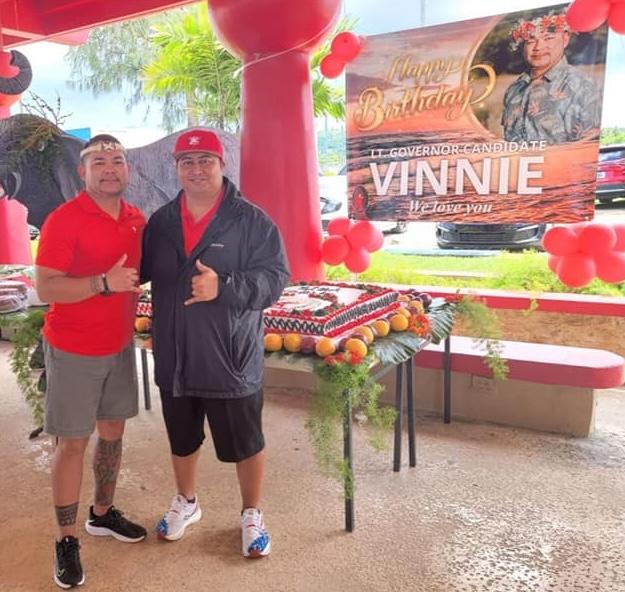
Setting Up the Narrative to Oust Kingman
Mr. Kingman is not alone in his suspicions about what might be happening behind the closed doors of power in the Commonwealth. Court and political observers speaking to Kandit on condition of anonymity are not surprised by the enormous odds stacked against the corruption prosecutor.
The silence from fearful supporters, however, is precisely what lends to the long-standing racket that is CNMI corruption.
“I have not seen the support that I was led to believe that I would have,” Mr. Kingman said. “In fact, I feel like it’s gone backwards and that, for many, my role out here is to provide cover for things staying the same.”
He surmised his detractors will say, ‘He just couldn’t get it done.’ “That’s what the narrative will be if I’m forced out,” he said.
It is not a far fetched theory. While Mr. Kingman has been thwarted at nearly every step of his investigation and prosecution of the former governor, glaringly absent – with the exception of fewer than a handful of people – has been the INDEM coalition and particularly the CNMI Democratic Party, which championed the anti-corruption crusade during the past two elections but has remained relatively silent about the government’s seeming unwillingness to support Mr. Kingman. There is a long history in the CNMI of professionals leaving in frustration or being quietly dismissed after finding that the job that they signed up for was not the one that was actually expected.
Has Corruption Reached the Courts?
Throughout Kingman’s uphill battle, he has experienced courtroom antics that have reduced the judiciary to the suspicion and judgment of observers shaking their heads at decisions that have constantly sided with Mr. Torres.
Much of the delays in the Torres trial has to do with the defense’s near relentless effort to have Mr. Kingman disqualified, questioning his credentials; delays that the court has allowed. Aside from this ongoing debate, the Torres case along with the contempt of legislature case against Torres ally Shayne Villanueva in a related trial, took several turns, including the assignment of multiple judges.
The Torres case was a hot potato for the local judiciary, which ended up assigning the case to a Guam judge, Alberto Tolentino. After Mr. Kingman arrived in Saipan, after the first spate of challenges to his presence, Judge Tolentino recused himself. Another Guam judge, Arthur Barcinas, was then appointed. Mr. Kingman raised objections to Judge Barcinas’ participation in the case due to his participation as a CNMI Supreme Court pro tem justice. That supreme court panel had Mr. Torres’ challenge to the legislative subpoena pending. The court ultimately ruled that appeal to be moot, despite there being a pending contempt charge from that subpoena. Judge Barcinas rejected the objection to his appointment.
Despite those objections and community concerns over the Guam jurist’s impartiality, the case continued with Judge Barcinas on the bench. Judge Barcinas also was appointed to the Torres’s challenge of Kingman’s initial legal services contract, and to the refiled contempt case against Torres about that same subpoena.
The case went inactive for a year, before a July ruling last year disqualifying the OAG (and as a result, Mr. Kingman) from prosecuting the case. During this inactivity, Mr. Kingman was instead defending himself from accusations of unauthorized practice of law. He moved to set the trial and requested hearings, but felt that he could not do anything else to move the case forward. By this time Mr. Kingman had filed a second case against the former governor. Judge Barcinas disqualified the OAG and Mr. Kingman from that case as well.
Judge Barcinas also declined to appoint a special prosecutor, deferring that responsibility to the executive branch. It is unclear what authority would allow such a prosecution.
No one in the executive branch has done so.
Meanwhile, the case against Mr. Villanueva, which charged the local businessman with contempt of the legislature for refusing to answer questions by a House panel investigating the scandalous BOOST program, went to trial.
The Villanueva case originally was with Judge Robert Naraja, who in August ruled that Mr. Villanueva’s blanket use of Fifth Amendment protection during the legislative panel hearings was not a right he was entitled to because he was not a criminal defendant, only a witness. Following that ruling, the Torreses entered into the case and moved to disqualify Judge Naraja on the basis that a political sign for House member Ralph Yumul was erected on an empty field owned by Judge Naraja.
Without a hearing Judge Naraja ended up recusing himself and Judge Kenneth Govendo was appointed to replace him. In December, Judge Govendo disqualified Mr. Kingman from the case and fined him. The defense attorney, Keith Chambers, also was fined but not removed from the case.
Judge Govendo ruled that Mr. Kingman was a necessary witness to Mr. Villanueva’s case, but Mr. Villanueva testified to his own beliefs.
In the Villanueva trial, Judge Govendo refused to allow the prosecution to cross examine Mr. Villanueva and ruled opposite Judge Naraja’s initial ruling. The judge decided the case in Mr. Villanueva’s favor, saying that the defendant had the right to remain silent even if he was not the subject of the investigation.
Following the reading of his verdict, Judge Govendo said, “Mr. Kingman is a liability to this government…He is arrogant, he thinks he is omnipotent, and maybe it is time for him to head back to Texas.”
“Aside from the incredibly prejudicial nature of the judge’s comments,” one attorney commented on condition of anonymity, “it was unprofessional, to say the least, and calls into question the independence of the judiciary.”
According to the rules of the federal court system (admittedly this only applies to federal judges, but for the sake of argument, we issue this here as a sort of standard), “A judge shall disqualify himself or herself in a proceeding in which the judge’s impartiality might reasonably be questioned, including but not limited to instances in which: (a) the judge has a personal bias or prejudice concerning a party, or personal knowledge of disputed evidentiary facts concerning the proceeding.”
Also according to the rules of conduct for federal judges, “A judge should be patient, dignified, respectful, and courteous to litigants, jurors, witnesses, lawyers, and others with whom the judge deals in an official capacity.”
The rules also admonish judges from public comments about lawyers, even after a trial court verdict:
“The admonition against public comment about the merits of a pending or impending matter continues until the appellate process is complete. If the public comment involves a case from the judge’s own court, the judge should take particular care so that the comment does not denigrate public confidence in the judiciary’s integrity and impartiality.”
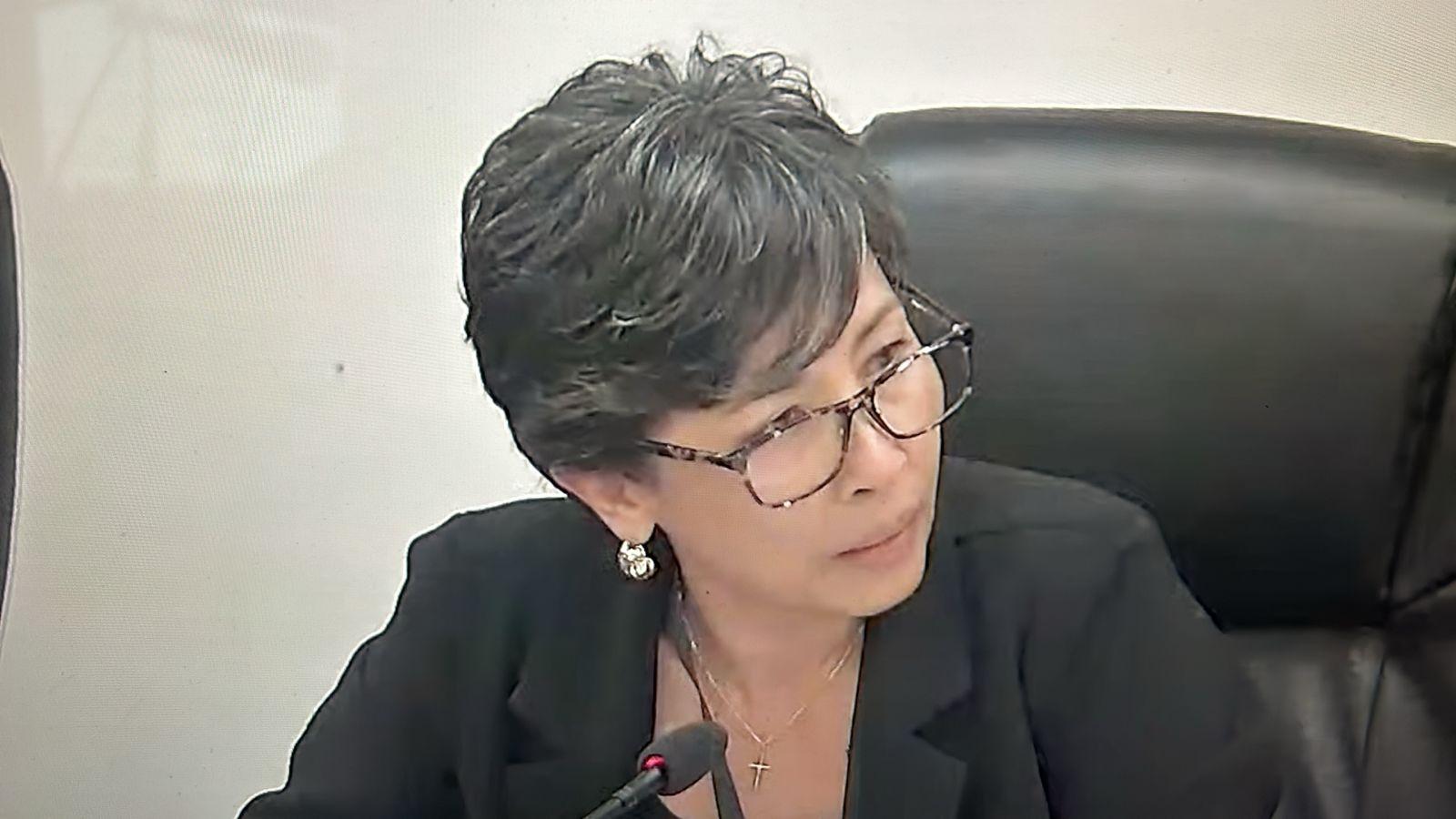
Shortly after the admonition, Ms. Flores of the House introduced a resolution condemning the verdict, and among other things, Judge Govendo’s prejudicial statement against Mr. Kingman:
“[T]his body condemns in the strongest terms the demonstrated bias against Assistant Attorney General James Kingman,” the resolution states. “Judge Govendo unjustifiably disqualified him from prosecuting the case and subjected AAG Kingman to a personal attack unbecoming of a judge. This judicial misconduct undermines public confidence in the judiciary’s impartiality and must not go unaddressed.”
The resolution, adopted on Valentine’s Day, was an unprecedented statement of no confidence in the government’s third branch by the government’s first branch.
It also was a rare statement of support for Mr. Kingman from the political establishment that has seemed to either ignore his work, or altogether wants the prosecutor to go away or to fail.
“One promise that I can make, is that I won’t quit,” Mr. Kingman said. “I can’t promise the desired results in a process I don’t have control over. There is a fundamental change that needs to happen to set up a more sustainable government and that will have to come from the people here. The forces that I have been facing have made it clear that these changes will not be received from an outsider.”
“It’s not a secret to anyone who’s been paying attention that people in places of power – probably even in the court – are bought and paid for,” the attorney speaking on condition of anonymity said.
Support from the Legislature and the Governor
The critical importance of a CNMI prosecutor having the ability to issue investigative subpoenas cannot be overstated. In the course of Mr. Kingman’s initial investigation against Mr. Torres, he found that previous investigators had not done a routine inquiry into Mr. Torres’ banking records.
He wanted to subpoena the former governor’s bank records in order to prove that Mr. Torres’ illegal activities had personally enriched him.
The fact that the judicial system would not allow such a fundamental function of the criminal investigation became the clarion call for the passage of Marissa Flores’ subpoena authority bill. Despite this, the legislation did not advance past the Senate, though Governor Palacios has said he would support such a law.
“I don’t know why,” Mr. Kingman said about the bill not passing in the last legislature, adding that he had nothing to do with its crafting or its advocacy. “Certainly there were not folks clamoring. The legislature didn’t seem to put it at a high priority. I have to think that if people really cared there would be more support for what I was doing.”
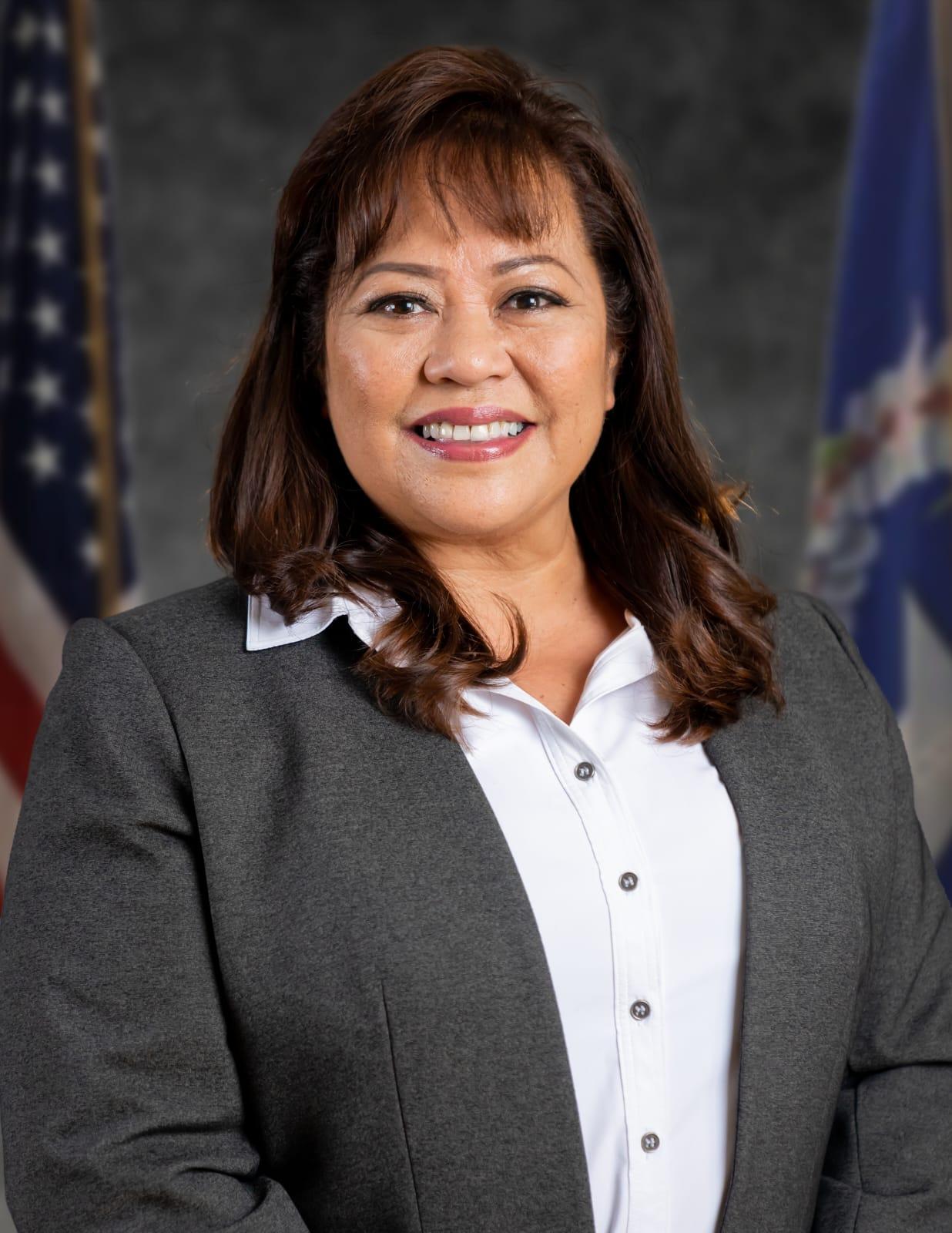
“I feel for what counsel Kingman is going through,” Senator Babauta said. “I also feel frustrated by the judicial process here. I think a lot could be done to improve it,” she said, adding her support to the subpoena legislation and to funding resources for Mr. Kingman’s efforts.
“I need investigators,” Mr. Kingman said as he began listing a short wish list of resources. “I need assets. The process regarding financial matters in the CNMI is intentionally opaque. I’m unsure what specific bottlenecks exist in obtaining the support and resources I need. With so many obstacles embedded within the system, it’s challenging to move forward without adequate resources and support. Many of these barriers stem from within the government.”
Ms. Babauta, Congresswoman Flores, and Mr. Palacios all said they will work toward getting Mr. Kingman these resources. The governor promised to address the matter last month.
But whether the rest of the legislature will lift a finger to assist the campaign against corruption is a whole other story, one which Mr. Kingman believes will take the assistance of the public and an entire shift in the societal norm of silence in the face of injustice.
“Politics is an outpouring of the will of a population,” he explained. “A vote is only one of many ways to express that. I’ve been surprised by how active the anonymous commentators are on social media, but absent in any form of public hearing. By and large, there is not a loud call for accountability and structural improvement.”
Support From the Public
Despite the absence of loud community engagement and political will on the part of most public officials, it has been the private encouragement of Commonwealth residents that have kept the prosecutor going despite the seemingly insurmountable obstacles.
“Occasionally someone will look both ways if it’s a private space and say they support me,” Mr. Kingman said. “But, for the most part I just see recognition on people’s faces, and they cross the other side of the road or the store. And as isolating as that can be, I understand it. There are real social costs of even public association with me.”
Kandit can attest to widespread quiet support for Mr. Kingman. Even members of the clergy have expressed their support for Mr. Kingman’s journey for justice.
“When people, especially the manamko, express their support for me, it helps ease the frustration and sense of unfairness I’ve experienced. I am not seeking personal victories here, but rather working toward building a government that serves all of its constituents, not just a select few,” the prosecutor said.
Is There Hope for Criminal Justice?
It can be easy to get lost in the labyrinth that has been Mr. Kingman’s campaign against corruption and his effort to hold Ralph Torres and so many others whose prosecutions apparently wait on the outcome of the Torres investigations. So much has happened. So many controversies, questionable court decisions, and behind-the-scenes political maneuvering have distracted the public from the fundamental reason for this campaign that should form the corpus of public thought about it:
Kandit: Did Ralph Torres and members of his administration commit crimes?
Kingman: Yes.
Kandit: With everything you’ve experienced, everything you’ve seen, do you think they will ever face criminal justice?
Kingman: No comment.
Kandit: Is there any hope for criminal justice?
Kingman: I can’t make promises. There is a fundamental change that needs to happen to set up a more sustainable government and that will have to come from the people here. The forces that I have been facing have made it clear that these changes will not be received from an outsider. That is understandable and common anywhere, of course, but I still hope I can advise and encourage some positive change.
When people, especially the manamko, express their support for me, it helps ease the frustration and sense of unfairness I’ve experienced. I am not seeking personal victories here, but rather working toward building a government that serves all of its constituents, not just a select few.
Kandit: Is this the most corrupt place you’ve ever seen?
Kingman: Certainly in America, yes.




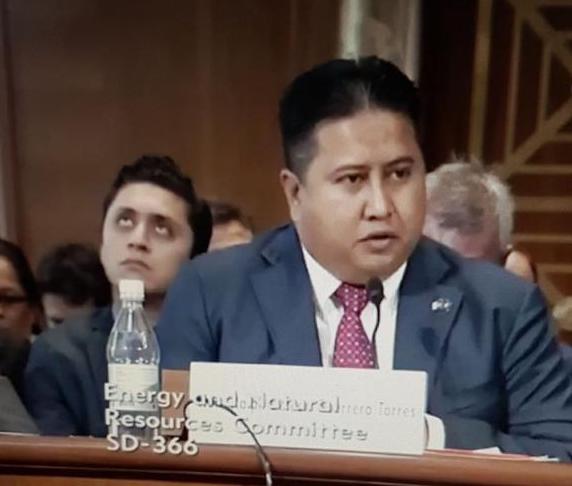
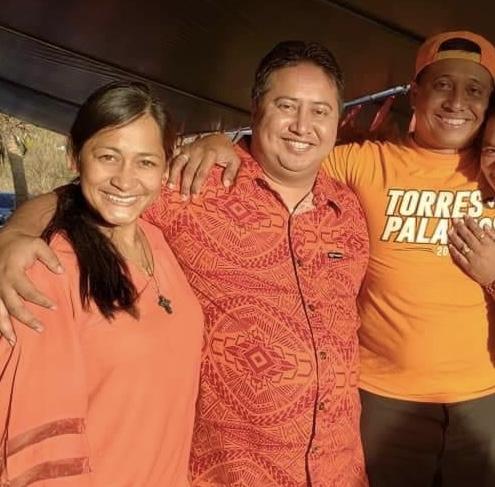



4 Comments
Weaver
04/03/2025 at 8:16 AM
Clear eyes, full hearts, can’t lose.
Grandpa
04/08/2025 at 8:05 AM
Hmm, sounds like bigger crooks than Biden.
Joe
04/10/2025 at 10:14 AM
I’m pissed and this is beyond ridiculous especially hearing the judicial involvement or stance on the matter. Bottom line is, the CNMI people are screwed big time. Thank you, Mr. Kingsman and Troy, for the piece.
Jake
04/24/2025 at 8:05 AM
Your unwavering commitment to justice is truly inspiring. Your dedication to uncovering the truth and holding those in power accountable exemplifies the highest standards of integrity and courage. Know that your efforts are not unnoticed, and you have the support and admiration of those who believe in transparency and justice. Stay strong; your perseverance is making a difference.